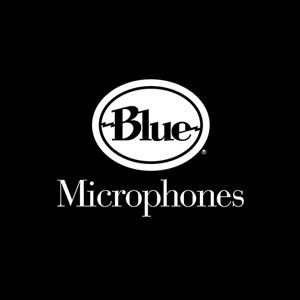TEMPE, AZ—The Conservatory of Recording Arts & Sciences (CRAS), one of the nation’s bestknown audio schools, offers internships to its students that turn the typical process on its head. Instead of selecting an intern position from a ready list of placements, students—who must complete 280 internship hours in order to graduate—each submit a top-10 wish list and CRAS staff work to secure their acceptance.
Facilities around the country are reportedly only too happy to accept CRAS students as interns, retaining them as full-time employees in significant numbers. OmniSound Studios in Nashville, for instance, has long been a part of the CRAS intern program, taking around 100 students from the school since 1999. With four studios to run, the facility may employ as many as five full-time or 10 part-time interns simultaneously.
Chris Holloway, a former health-care entrepreneur who is now general manager of Omni-Sound, says that he looks for interns with a good work ethic who are outgoing and dependable. “Those are the more important traits that I see in people who are successful. You’ve got to build your clients, and it takes somebody who is outgoing, somebody who is self-motivated, to be successful,” he says. “If they’re real outgoing and eager, those are the ones who generally are still doing engineering today.”
Interns are expected to perform the typical janitorial and runner duties, of course, but they also get hands-on experience setting up for tracking and vocal sessions, and are given total access to the studios and staff during slow periods. “They get studio time and criticism and feedback from the engineers,” says Holloway. At least five interns have gone on to paid positions at OmniSound during Holloway’s time at the studio, including current chief engineer Rory Rositas.
Housed in the legendary complex built by Bill Putnam on Sunset Boulevard in Hollywood in the 1960s, EastWest Recording Studios, which opened in 2006, and the studio business that preceded it at the location have taken on 30 CRAS interns since 2001. Seven- teen of those have been hired by the studio or have done projects at the facility following their internships.
EastWest manager Candace Stewart says that she looks for attention to detail from prospective interns, beginning with spelling and grammar on their resumes. She also wants to see a friendly attitude, proper etiquette and neat, well-groomed appearance during the interview.
Stewart likes to see initiative if the interns expect to get ahead in the business. “At every step of your career, be the person who says yes,” she advises.
The school’s curriculum, which encompasses broadcast audio, live sound and gaming in addition to music production, also provides students with skills not found elsewhere, she believes. That broad-based experience dovetails with EastWest’s work, which includes television and film projects in addition to recording a wide range of music genres.
“If a student has an interest in music for film or television, then they’re going to get hands-on experience in seeing orchestral recordings as well as hip-hop, rock, jazz,” Stewart comments.
At Capitol Studios, located at the base of the iconic Capitol Records Building in Hollywood, CRAS interns can gain experience in both the audio recording world and the business world. The studios are part of Capitol Records, owned by Universal Music Group, the world’s largest music corporation, which is part of Paris-based music, film and TV conglomerate Vivendi S.A.
According to Paula Salvatore, vice president of Capitol Studios, interns often learn about administration and marketing while also working with studio staff. The internships expose CRAS students to business considerations, such as how the studio sets and meets corporate goals, and how the parent company provides support and investment to the studios. She comments that while interns will typically be observing more than getting their hands dirty, they will learn a lot of people skills and be exposed to many label-associated events.
Anyone who has spent time at a top-shelf recording studio will know that concierge services are arguably as valuable as the engineering skills being offered. Salvatore looks for recommendations from CRAS instructors as well as resumes that include service jobs, such as at hotels or restaurants, when selecting interns.
Candidates should dress appropriately for Capitol’s casual but professional environment, she says, and display eagerness for the opportunity while being authentic in their personalities. Technical competence is also essential; Salvatore notes that CRAS interns generally stand out for their familiarity with current technology.
While the total number of CRAS interns who go on to receive permanent job offers at top recording studios such as Capitol, EastWest and OmniSound might appear relatively small, there are often other opportunities to be found in the surrounding cities. For example, equipment rental companies keep would-be engineers in regular contact with studios. Studio managers like Salvatore also network with artists and producers who regularly seek engineering expertise for home studio and other projects, including live sound productions.

























